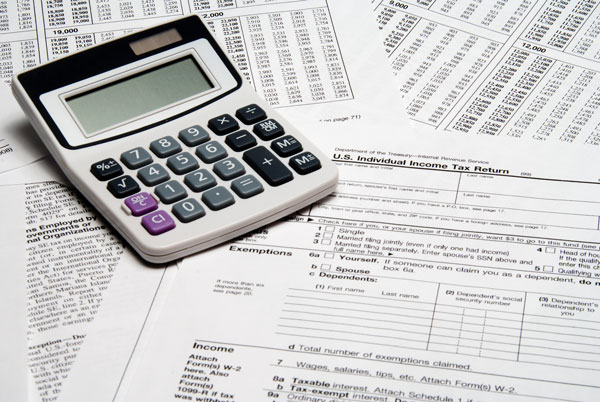
WHAT ARE THE TAX IMPLICATIONS OF SELLING A RENTAL PROPERTY?
The decision to sell a rental property can be a difficult one, especially when you consider that selling can come with negative financial consequences, specifically losses resulting from tax bills. (Read also: Should I Sell My Property or Rent it Out?) Selling a rental property without taking a hit to your bank account can be tough, but it’s not impossible. If you’re looking to sell your rental property without incurring a loss, there are three factors you should consider.
Be aware, we are not accountants and this is not tax advice. These steps provide general education on taxes associated with selling a rental property. We recommend you consult a tax accountant for questions about your particular situation.
CAPITAL GAINS
If you choose to sell your rental property, you should be prepared to pay capital gains taxes. Capital gains taxes occur whenever an asset is sold for any amount of profit, and are considered either short-term or long term. The IRS defines a short-term gain as a gain on a property that was held for a year or less and is taxed at the same percentage as your regular income tax.
Conversely, a long-term gain occurs when you hold a property for more than a year. Taxation for long-terms gains falls somewhere between 0-20%, depending on which tax bracket you fall under. In 2017, people in the 25% to 35% range will pay 15% on long-term capital gains while those in the 39.60% bracket will pay 20% (You can check out Charles Schwab & Co’s 2017 table here).
If you’re selling a property for a considerable amount of money, capital gains tax can add up quickly. For example, if you fall under the 25% bracket and you’re planning on profiting $200,000 from the recent sale of your rental property, you’ll be responsible for paying $35,000 in capital gain taxes.
Compared to the sale of a personal-use property, the sale of a rental property results in much higher rates of capital gains taxation. Additionally, any depreciation you have declared on the property will raise the amount of capital gains tax you owe.
DEPRECIATION RECAPTURE
The IRS requires that a rental property is depreciated over 27.5 years (or 3.636%), based on the decided “useful life” of a rental property. To find the amount of depreciation that can be deducted from the property, multiply the price of the housing structure by 3.636% for each full year it was rented out for. Although depreciation helps decrease the amount of taxes owed each year during ownership, now that the property is being sold, the non-cash tax deduction must be partially repaid in the form of depreciation recapture tax.
For example, let’s say you paid $300,000 for a property, with the land valued at $100,000 and the housing unit valued at $200,000 with no additional improvements made on the property. To calculate your depreciation expense, multiply $200,000 by 3.636% (or divide by 27.5) to get a depreciation expense of $7,272. Keep in mind that the IRS does not consider land to be a depreciable asset.
Now let’s say you’ve held your property for five years. That amount of time would result in a total depreciation expense of $36,360 ($7,272 x 5), which will be collected and taxed at 25% as a way of actively “recapturing” any previous depreciation the property has incurred.
1031 EXCHANGES
If you’re looking for a way to get around paying capital gains tax and don’t need cash ASAP, a 1031 exchange may be a good option. The IRS allows a property seller to take the total amount of the property sale and reinvest it in another property while deferring any tax payments. To be considered a valid 1031 exchange, your property must meet certain requirements outlined by the IRS. For example, both properties must be considered a “like-kind” exchange, meaning both properties are similar enough in characteristics to meet transaction provisions, and the close of the exchange property must occur before 180 days’ time. If you know you’ll be entering in a 1031 exchange, it’s a good idea to start looking for your new place before you sell your current one. If you’re looking to invest in a new property without acquiring immediate capital, a 1031 exchange is a great option.
While basic Section 1031 exchanges are a good way to avoid paying capital gains taxes in the near future, you also have the option to do a deferred exchange. A deferred exchange is considerably more complicated but allows for more freedom. While a Section 1031 exchange includes an exchange of properties, a deferred exchange allows you to relinquish one property while afterward purchasing an additional (or multiple) like-kind replacement properties. You can read more about how section 1031 and deferred exchanges work on the IRS’s page here .
If you’re looking to sell your current property and invest in another, a 1031 exchange will be the most straightforward way to go and will keep you from having to pay taxes. If you need the capital right away, you are likely going to have to pay some taxes. If your rental property is breaking even or even making some money, it’s wise to hold off on selling, unless you can offset your losses to lessen the burden of the capital gains tax. Selling a rental property can be tricky, but if you do your research and are well prepared, you can avoid incurring losses that may have a significant financial impact on you and your family and keep more of the profit for yourself.
Should you decide to avoid all income tax on selling your property by renting out, we can give you a free rental price analysis. You can also learn more about being a landlord by reading Pros and Cons of Being a Landlord, Are You Cut Out to Be A Landlord, and the 4 Things You Need To Do Right Now To Start Renting Your Property.
